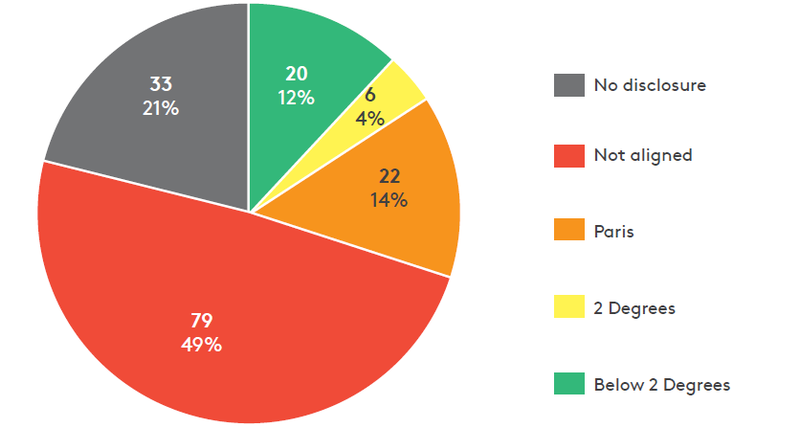UK Government expects listed companies to disclose climate risk in line with TCFD by 2022, how will they respond?
The call for companies to be more transparent about their climate-related risks and opportunities has received a big push in the UK, thanks to the Government’s newly published Green Finance Strategy. This sets an expectation for all listed companies and large asset owners to disclose in line with the Task-force for Climate-related Financial Disclosure (TCFD) recommendations by 2022. A task-force of UK regulators chaired by Government is being set up to look into the most effective way of achieving this, including how to make the TCFD recommendations mandatory. In this article, Tim Crozier-Cole - Head of Strategy and Research at BIP.Verco - comments on the status of TCFD presently and how companies are likely to respond.
Slow progress on climate disclosure globally
It has been two years since The Financial Stability Board published its influential ‘Task-force for Climate Related Financial Disclosure’ (TCFD) recommendations. TCFD’s latest Status Report[1] demonstrates that support for the TCFD continues to grow. Nearly 800 organisations have announced their support for TCFD and its work, including global financial firms responsible for assets in excess of $118 Trillion.
This is exciting to see, but looking more closely, it is clear that there is still a way to go. The TCFD Task Force Chair Michael Bloomberg writes:
“Progress must be accelerated. Today’s disclosures remain far from the scale the markets need to channel investment to sustainable and resilient solutions, opportunities, and business models. I believe in the power of transparency to spur action on climate change through market forces.”
The percentage of companies globally disclosing climate-related information has increased but remains low. This chimes with a recent report by the Transition Pathway Initiative[2], which reviewed the climate disclosure of 274 of the largest corporate carbon emitters, accounting for around 41% of emissions of publicly listed companies worldwide. The report found 70% of these companies either have no disclosure or have yet to integrate climate change into their operations, as shown below.

From TCFD’s analysis, the majority of companies disclosing their climate related information do so only against a few of the TCFD’s eleven recommendations. Disclosures for ‘resilience of strategy’ (scenario analysis) and ‘integration into overall risk management’ are particular areas of weakness, with few companies covering these areas in their disclosure.
Why is this so? From our experience, scenario analysis is seen as complex and time intensive. Integration into overall risk management requires Board or C-suite engagement. It’s not something that a sustainability manager or their consultant can do on their own, unlike many of TCFD recommendations. However, it is through these activities that the TCFD recommendations are likely to make their most tangible impact and thus skipping them significantly reduces the value of the whole exercise.
How will companies respond?
TCFD provides a structure for climate disclosure and is being used to encourage companies to consider climate risks and opportunities. But do companies really need to be corralled into thinking about what climate change means for them?
Both the response to and impacts of climate change mean a huge shift in the economy, regulation and consumer attitudes. It is a politically-charged topic, potentially more divisive than Brexit when it comes to societal impacts. What company would not want to understand the opportunities and risks posed by it?
Whether companies want to share what they find with investors is another matter. We can expect to see some companies dragging their feet and lobbying against making TCFD mandatory, especially when they are struggling to adapt their business models to fit a net zero world, or want to keep some answers to themselves.
Other companies in carbon intensive industries will wish to extend their license to operate as long as possible by slowing the transition down, as has happened for the last 30 years in some quarters. Even so, TCFD and the Green Finance Strategy are going to make calls for climate disclosure harder to ignore. Investors will increasingly have the information they need to shift capital away from the most carbon-intensive activities. Companies that offer both a solid financial return and are climate-friendly will be in huge demand.
What does it mean for unlisted companies? We can expect to see TCFD approaches to spread. Companies on a quest to reduce their climate impacts soon look at their value chain. This leads to pushing suppliers on carbon performance and thus requiring climate disclosure as part of procurement. Investors and boards of large privately held companies are increasingly interested in climate risks and opportunities. They may see TCFD as a convenient framework, even if the goal is to inform internal strategy rather than public disclosure.
Conclusion
The trend towards greater numbers of companies disclosing climate-related information continues. Whether the UK Government will actually mandate companies to follow the TCFD recommendations and how this will be enforced remains to be seen. Ultimately, it’s important that companies and sustainability professionals do not lose sight of the ultimate objective behind TCFD - to drive down emissions and avoid some nasty shocks to the world economy, through failing to adapt to the realities of climate change.
How we can help
BIP.Verco provides TCFD services for clients, starting with a gap analysis to baseline current TCFD compliance as well as support in improving disclosures and identifying net zero pathways.
For further information please contact Tim Crozier-Cole, Head of Strategy and Research.